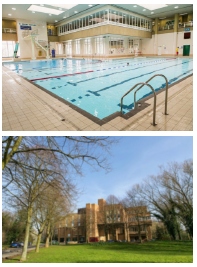Energy-performance contracts that deliver

The very real cost savings being achieved by Peterborough City Council’s energy-efficiency framework are being used to finance further energy- and cost saving measures — as Kerry McLoughlin of Honeywell Building Solutions explains.
The Peterborough City Council (PCC) energy-efficiency framework is unusual for a number of reasons. There is one in particular — it actually works, and works well.
Historically, a significant number of energy-performance contracts (EnPCs) planned for the public sector by third-party providers have generated zero benefits. This is because the energy savings promised during initial engagement and mini-competitions haven’t proven to be possible during detailed engineering phases, so no works have taken place. The only results have been wasted time, resource and opportunity.
Honeywell was appointed the framework delivery partner for Peterborough City Council in June 2013 and, following the award of the first EnPC in early 2014, has already helped the council deliver over £1.1 million in savings — a figure which is expected to rise to £10 million by March 2019.
The first phase covered energy efficiency upgrades at 41 facilities owned by the council. They include the town hall, swimming pools, 33 schools, a leisure centre, a library and a multi-storey car park.
A range of energy conservation measures for the facilities were selected by the council following a comprehensive engineering analysis of the current energy performance at each facility by Honeywell.
The measures included upgrading or replacement of building control systems, an air handling unit, lighting systems and pool filtration systems, new window and pipework insulation and the installation of CHP units, solar PV systems and a voltage-optimisation unit.
A behaviour-management programme is supported by the installation of information dashboards within a number of the facilities.
The improvements are expected to generate over 934 MWh of electricity savings and around 2.14 GWh of gas savings per annum.
 |
| Peterborough City Council’s Town Hall is one of the buildings to enjoy improvements in energy efficiency. |
Utility savings at the swimming pool leisure complex, for example, equate to 46.8% (gas), 53.2% (water) and 77.3% (electricity). In real terms the building is now producing 773 t less CO2 per annum.
The newly installed equipment enables the council to benefit immediately from control improvements while using future operational savings, which are guaranteed by Honeywell, to reduce capital budget requirements for maintenance and refurbishment and to make a significant contribution towards reducing the maintenance backlog. Live data recording and analysis ensure that all measures perform as specified and that the savings are being achieved.
Working in partnership with Honeywell means Peterborough City Council has been able to make the most of these opportunities by identifying a suitable portfolio of contracts, creating a business case for each one based on a robust savings plan, securing the most appropriate funding and then deploying the relevant measures as efficiently as possible.
Importantly, the fully functioning, EU-compliant EnPC framework also allows Honeywell to provide energy-efficiency programmes for other public-sector organisations across the country. The framework enables these bodies to take advantage of ENPCs within their own estates — cutting costs, reducing carbon emissions and enhancing building performance without needing to undertake a separate, time-consuming and costly procurement process.
Not surprisingly, the framework is attracting interest from elsewhere. Peterborough City Council and Honeywell are now involved in advanced discussions at C-level with a number of district, city and county councils and have already completed a project for a registered social landlord.
Each call-off contract within the PCC EnPC framework is separate — providing the flexibility to accommodate individual strategies, drivers and funding availability for each portfolio of properties (and sub-sets within such portfolios) and enabling the benefits to be tailored specifically for each participating public sector organisation.
Typically, those benefits are control improvements funded by future energy savings, which are guaranteed by the EnPC provider, and a reduction in capital-budget requirements for maintenance and refurbishment.
The improvements can be quite significant, particularly when the comparatively low maintenance requirements of upgraded assets are also taken into consideration.
 |
| A range of buildings benefit from Peterborough City Council's energy-efficiency framework. |
To avoid wasting time, resource and opportunity, ensure that your EnPC partner is prepared to undertake a preliminary energy assessment on the buildings most likely to help you achieve your maintenance and refurbishment goals. This is the investigation phase, where engineers and technical analysts visit each site, assess the various existing systems, carry out system-level energy analysis, formulate solutions, collect sample measurements and make calculations to establish potential savings.
Once a bundled financial model based on the assessment has been prepared and agreed, an investment-grade audit should be carried out, consisting of detailed consumption analysis, further energy model refinement, design development and more detailed pricing. It is only at this stage that a decision should have to be made on whether or not to proceed.
The thoroughness of the process means the right decision can be made based on facts and data, rather than crossing fingers and hoping for the best. The results of that decision, as Peterborough City Council has discovered, are significant and substantial savings to its maintenance and refurbishment requirements, as well as an enhanced property portfolio.
Kerry McLoughlin is Blue Sky Peterborough branch manager with Honeywell Building Solutions.







